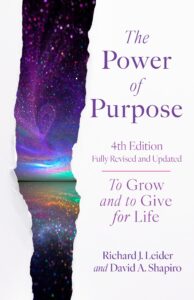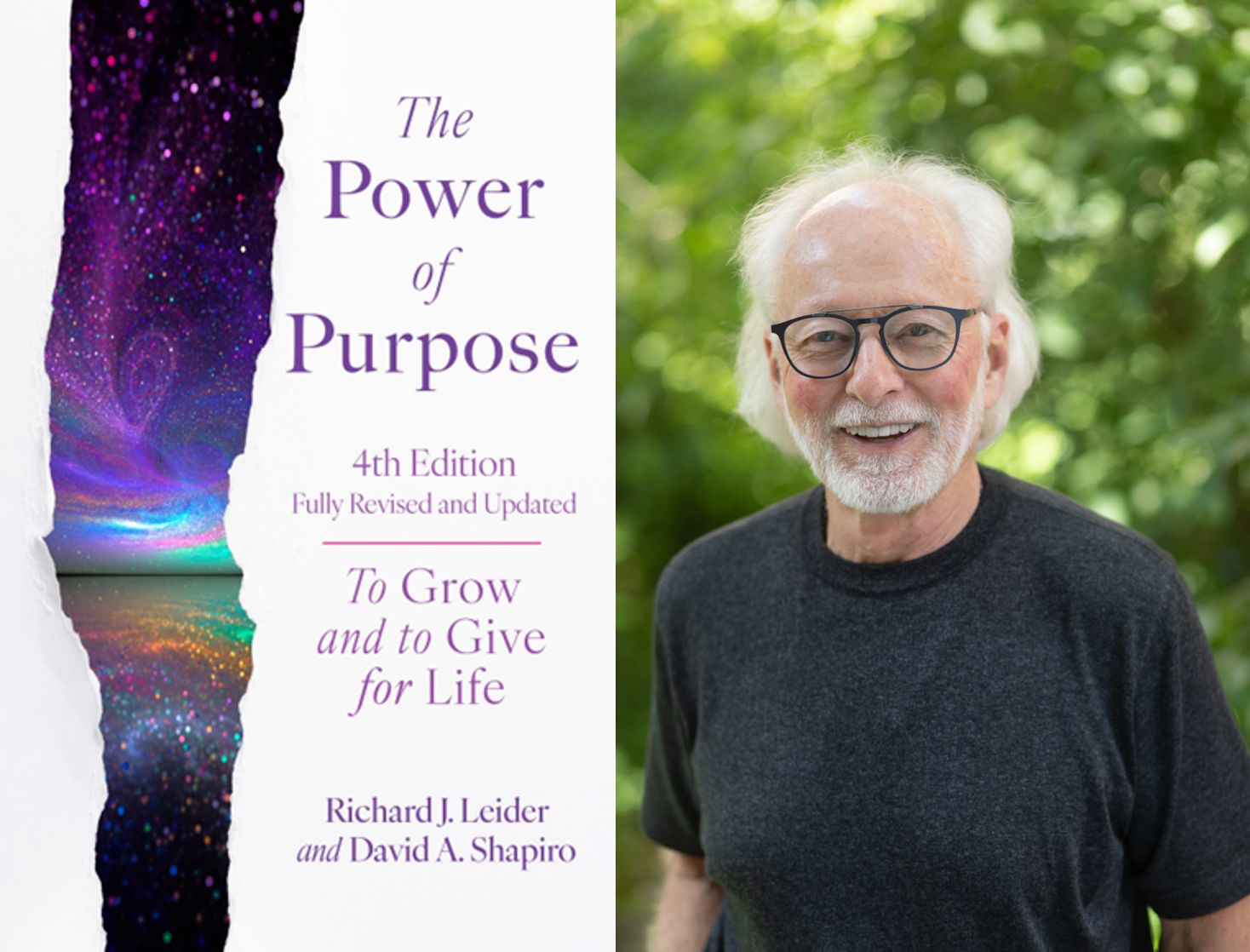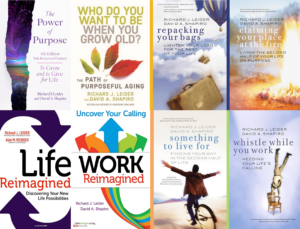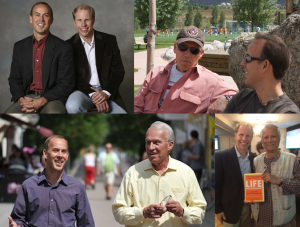Do you know or work with someone who has a victim mentality? Perhaps they believe their hardships are always someone else’s fault and that things will never change, so there’s no use trying. Maybe they see themselves as powerless, hopelessly stuck in negative circumstances.
The cost of having a victim mentality is steep. It drains their energy, triggers resentment, and fosters bitterness. Essentially, they’re taking a bad situation and making it worse. It can lead to withdrawal and other harmful coping behaviors. Over time, it erodes their sense of agency and well-being, trapping them in a downward spiral.
Let’s pause to acknowledge something important: everyone faces hardships, and some endure traumatic experiences. Far too many people are victims of crime, cruelty, neglect, or abuse in different forms.
But there’s a vital distinction between experiencing victimhood and adopting a victim mentality. The latter can take hold and persist for years—even a lifetime—unless a person consciously chooses to break the cycle.
Signs that Someone Has a Victim Mentality
How to know if someone is struggling with a victim mentality? Here are some common signs:
- they often focus on what’s wrong rather than what can be improved
- they express dissatisfaction about things (e.g., colleagues, workload)—but without seeking solutions
- they often express feelings of powerlessness in the face of their difficulties
- they complain that other people seem to have it much easier
- something always seems to go wrong for them
- they often act like a martyr*
- they often expect the worst
- they view the world as hostile or unfair
- they’re fixated on trials and tribulations
- they seem to be hooked on misery and drama
“Victims’ talent for high drama draws people to them like moths to a flame. Their permanent dire state brings out the altruistic motives in others. It is hard to ignore constant cries for help…. And like moths in a flame, helpers quickly get burned; nothing seems to work to alleviate the victims’ miserable situation; there is no movement for the better.”
-Manfred F. R. Kets de Vries, “Are You a Victim of the Victim Syndrome?”
The Challenges of Trying to Help Others Stop Playing the Victim
If you see someone struggling with a victim mentality, you may want to help them overcome it. But a few cautions are in order, since there are many potential pitfalls.
People caught in a victim mentality may rely on guilt trips or emotional manipulation to get attention or sympathy. They tend to avoid taking responsibility, offering excuses for their actions—or inaction—and sometimes bending the truth to reinforce their sense of being wronged. They’re often skilled at provoking emotional reactions in others, pulling people into their drama, whether consciously or not.
Though they may ask for help, they frequently criticize or reject the support they receive. This can leave you feeling frustrated or blamed, as the person with the victim mentality claims further injury in response to perceived slights or failed attempts to help.
“…people with a victim mentality are very difficult to handle. They have an extremely fatalistic outlook on life. Because they believe they have no control over the way events unfold, they have a poor sense of responsibility. Every negative outcome in their life is attributed to people or circumstances beyond their control. Every effort made to help them, or to present a solution to their predicament, is met by a huge arsenal of reasons why it will not work, some of them quite ingenious. Their problems are apparently unique and therefore insoluble. They appear always to be trying to prove the helper wrong. Anyone prepared to help them is left with a sense of utter frustration.” -Manfred F. R. Kets de Vries, “Are You a Victim of the Victim Syndrome?”
When people have a victim mentality, they’re likely to ruminate on things a lot. Dwelling on past hurts and perceived injustices keeps their wounds fresh. They may be subconsciously drawn to others with similar mindsets or even to dysfunctional or abusive relationships, reinforcing their belief that the world is unsafe and unfair.
The victim mentality becomes self-reinforcing over time. The person begins to identify with their pain, seeing themselves through the lens of what’s been done to them—trapping them in a cycle of disappointment, blame, and increasing isolation.
How to Help Others Stop Playing the Victim
With the above cautions in mind, and thinking about when professional counseling may be needed, here’s how you can help others stop playing the victim:
Start with empathy, not judgment. They may be carrying unseen burdens or trauma.** Avoid labeling them. Feeling like a victim is painful enough without added stigma or blame.
Don’t feed the cycle. Even listening to repeated grievances can enable their victim mentality. Gently steer the conversation toward more constructive ground. Set clear boundaries while remaining compassionate.
Offer encouragement. Remind them of their strengths and past accomplishments to help rebuild their confidence and sense of agency. Celebrate their progress and help them see themselves as someone who can learn and grow through challenges. Remind them of their resilience by pointing out times when they’ve overcome adversity.
“…what helps victims best is the development of a healthier self-concept.”
-Manfred F. R. Kets de Vries, “Are You a Victim of the Victim Syndrome?”
Help them identify their strengths. Invite them to make a list of their strengths (they can use my Strengths Search tool for that). Add to their list by noting their additional strengths, since people often overlook their own strengths. Then help them identify how those strengths could help them with their current challenges.
Help them count the cost of the victim mentality. With care, reflect how the victim mentality may be undermining their growth and happiness. Invite them to imagine how much better things could be if they escaped this terrible trap.
Invite them to choose something better. Support them in making a conscious decision to release the victim role and pursue a life of possibility, strength, and joy. Help them sense the vast difference between the heavy burden of the victim mentality and the liberating lightness of letting it go.
Separate their identity from their pain. Remind them: they are not the bad things that have happened to them. They’re more than their wounds. Support them in seeing themselves as survivors, not victims.
“I am not what has happened to me. I am what I choose to become.”
-Carl Jung, Swiss psychiatrist
Reinforce their sense of agency. Affirm that, even in hardship, they still have options. They can respond with courage and move forward, even with small steps.
Help them focus on solutions. Ask what they’d do if they had the power to change things. Guide them in brainstorming small, achievable steps they can take now. Emphasize their ability to make progress—but avoid rescuing them or dispensing “the answers.” Help them see and start to believe in their own capacity.
“People dealing with individuals with a victim mindset should recognize that there is a difference between rescuing and helping.” -Manfred F. R. Kets de Vries, “Are You a Victim of the Victim Syndrome?”
Help them develop a broader perspective. Acknowledging that others also face hardship and pain can help them snap out of the victimhood trance.
Challenge them to serve. Have them look for ways they can help others. Serving can shift their focus outward and destroy the cycle of self-pity.
Gently challenge their self-talk. Encourage them to notice how they speak to themselves. Ask thoughtful questions to help them see that they’re not helpless, and that they can reframe negative narratives.
Help them examine limiting beliefs. Ask whether their beliefs about their situation are really true—or just familiar. Support them in recognizing which beliefs are helpful and which are harmful.
Redirect their focus. When they start ruminating on their misfortune, guide their attention toward something positive—like what they’ve learned or what they’re looking forward to.
Help them recognize patterns. Invite them to think about examples of when and where they tend to fall into a victim mindset. Identify triggers. Brainstorm with them ways they can handle those situations more constructively.
Encourage them to prioritize self-care. Help them see the value in developing good habits—like sunshine, movement, and rest—that build a foundation for mental and emotional wellbeing.
Encourage them to prioritize healthy relationships. Gently steer them away from people who reinforce a victim mentality. Suggest spending more time with those who are supportive, responsible, and action-oriented.
Encourage them to take responsibility. Support them as they learn to take full responsibility for their lives. Invite them to experience the power of owning their choices instead of dwelling on misfortune and fault.
“If it’s never our fault, we can’t take responsibility for it. If we can’t take responsibility for it, we’ll always be its victim.”
-Richard Bach, writer
Encourage forgiveness. If they’re ready, talk about the power of forgiveness—for others and for themselves—as a way to reclaim peace and begin to heal.
Conclusion
When trying to help others overcome their victim mentality, it’s important to be realistic about the process. Overcoming a victim mentality takes time. Quick fixes are unlikely. It may be deeply tied to their identity, making change difficult.
“We should not underestimate the challenge of letting go of such a fundamental part of their identity. Their history of hurt and trauma has defined who they are, and they have been playing the victim over and over again in their mind.”
-Manfred F. R. Kets de Vries, “Are You a Victim of the Victim Syndrome?”
Encourage patience and honesty as they navigate this shift. Bear in mind that the responsibility is theirs alone, although you may be able to provide care, support, and helpful nudges along the way.
Tools for You
- Crafting Your Life & Work online course to help you create a life and work you love
- Traps Test (Common Traps of Living) to help you identify what’s getting in the way of your happiness and quality of life
- Quality of Life Assessment so you can discover your strongest areas and the areas that need work, then act accordingly.
Related Articles
- “The Trap of a Victim Mentality—And What to Do About It”
- “This is How to Stop Being a Victim: 18 Practices”
- “The Trap of Blaming Others”
- “How to Stop Blaming Others: 10 Tips”
- “How to Break Bad Habits and Create Good Ones”
- “How to Overcome Feelings of Helplessness”
- “The Mental Prisons We Build for Ourselves”
- “How to Stop Catastrophizing—Managing Our Minds”
- “The Power of Taking Full Responsibility for Your Life”
- “The Incredible Benefits of Being Action-Oriented”
- Kets de Vries, Manfred F.R., Are You a Victim of the Victim Syndrome? (July 24, 2012). INSEAD Working Paper No. 2012/70/EFE
Postscript: Inspirations on How to Help Others Stop Playing the Victim
- “…people suffering from the victim syndrome are prone to aggravate the mess in which they find themselves. Strange as it may sound, they are often victims by choice. And ironically, they are frequently successful in finding willing victimizers.” -Manfred F. R. Kets de Vries, “Are You a Victim of the Victim Syndrome?”
- “Once you have identified with some form of negativity, you do not want to let go, and on a deeply unconscious level, you do not want positive change. It would threaten your identity…. You will then ignore, deny, or sabotage the positive in your life.” -Eckhart Tolle, The Power of Now
- “A victim identity is the belief that the past is more powerful than the present, which is the opposite of the truth.” -Eckhart Tolle, The Power of Now
- “…an individual’s sense of personal control determines his fate.” -Dr. Martin Seligman, Learned Optimism: How to Change Your Mind and Your Life
- “Most people are in love with their particular life drama. Their story is their identity. The ego runs their life. They have their whole sense of self invested in it.” -Eckhart Tolle, The Power of Now
- “The difference between the hero and the victim is the way they react to the pain they experience.” -Donald Miller, business executive and author
- “…even the helpless victim of a hopeless situation, facing a fate he cannot change, may rise above himself, may grow beyond himself, and by so doing change himself. He may turn a personal tragedy into a triumph.” -Victor Frankl, Austrian psychiatrist and Holocaust survivor
- “Every adversity, every failure, every heartache carries with it the seed of an equal or greater benefit.” -Napoleon Hill
- “Self-pity is our worst enemy, and if we yield to it we never do anything wise in the world.” -Helen Keller
- “Constructive action is the opposite of victimized brooding.” -Dr. Robert W. Firestone, clinical psychologist
- “You may not control all the events that happen to you, but you can decide not to be reduced by them.” -Maya Angelou, poet and civil-rights activist
- “Whatever has happened to you in your past has no power over this present moment, because life is now.” -Oprah Winfrey, media entrepreneur and philanthropist
- ‘‘The willingness to accept responsibility for one’s own life is the source from which self-respect springs.” -Joan Didion, writer
* For example, does he repeatedly sacrifice himself—often unnecessarily—to gain sympathy or moral high ground while portraying himself as the sole sufferer and resenting others for not recognizing the sacrifice?
** If you’re helping someone who has experienced trauma or abuse, encourage them to disclose it as early as possible to trained professionals, or to trusted family members or friends when appropriate. This can lead to more support and faster processing and healing. Encourage them to reach out to a therapist, counselor, or support hotline when needed. Options include:
- BetterHelp (network of licensed therapists)
- SonderMind (connecting people with therapists)
- TalkSpace
- 7cups (a free help network)
- Mental Health Mates (U.K. support groups)
- Global Counseling Network
- International Therapist Directory
- Crisis Text Line (text “HOME” to 741741)
+++++++++++++++++
Gregg Vanourek is a writer, teacher, and TEDx speaker on personal development and leadership. He is co-author of three books, including LIFE Entrepreneurs: Ordinary People Creating Extraordinary Lives (a manifesto for living with purpose and passion) and Triple Crown Leadership: Building Excellent, Ethical, and Enduring Organizations (a winner of the International Book Awards). Check out his Crafting Your Life & Work online course or get his monthly newsletter. If you found value in this article, please forward it to a friend. Every little bit helps!




































